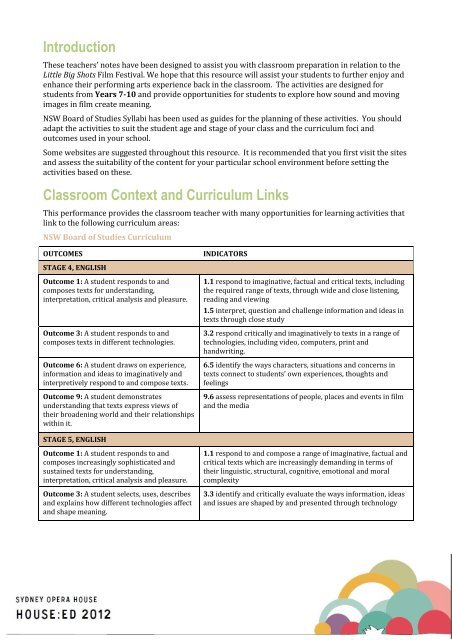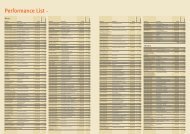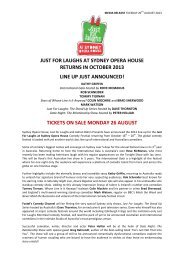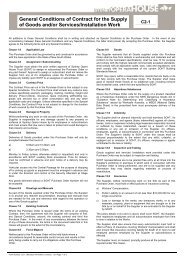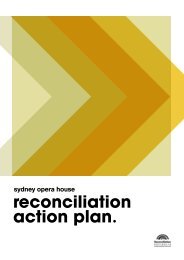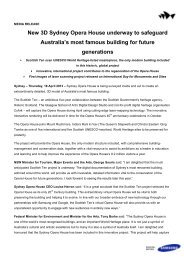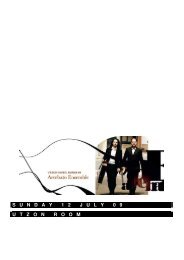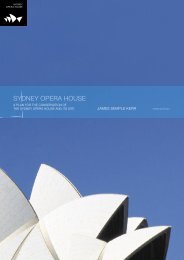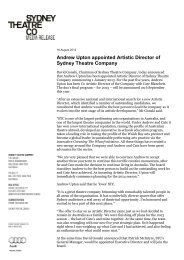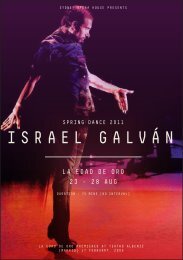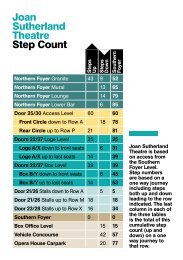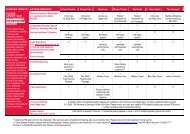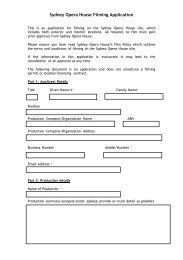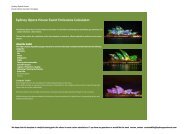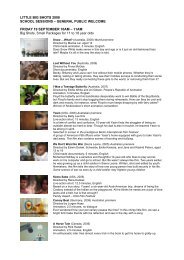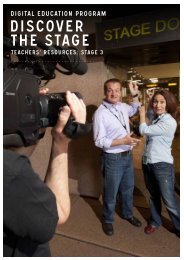Little Big Shots - Secondary Teachers - Sydney Opera House
Little Big Shots - Secondary Teachers - Sydney Opera House
Little Big Shots - Secondary Teachers - Sydney Opera House
You also want an ePaper? Increase the reach of your titles
YUMPU automatically turns print PDFs into web optimized ePapers that Google loves.
Introduction<br />
These teachers’ notes have been designed to assist you with classroom preparation in relation to the<br />
<strong>Little</strong> <strong>Big</strong> <strong>Shots</strong> Film Festival. We hope that this resource will assist your students to further enjoy and<br />
enhance their performing arts experience back in the classroom. The activities are designed for<br />
students from Years 7-10 and provide opportunities for students to explore how sound and moving<br />
images in film create meaning.<br />
NSW Board of Studies Syllabi has been used as guides for the planning of these activities. You should<br />
adapt the activities to suit the student age and stage of your class and the curriculum foci and<br />
outcomes used in your school.<br />
Some websites are suggested throughout this resource. It is recommended that you first visit the sites<br />
and assess the suitability of the content for your particular school environment before setting the<br />
activities based on these.<br />
Classroom Context and Curriculum Links<br />
This performance provides the classroom teacher with many opportunities for learning activities that<br />
link to the following curriculum areas:<br />
NSW Board of Studies Curriculum<br />
OUTCOMES INDICATORS<br />
STAGE 4, ENGLISH<br />
Outcome 1: A student responds to and<br />
composes texts for understanding,<br />
interpretation, critical analysis and pleasure.<br />
Outcome 3: A student responds to and<br />
composes texts in different technologies.<br />
Outcome 6: A student draws on experience,<br />
information and ideas to imaginatively and<br />
interpretively respond to and compose texts.<br />
Outcome 9: A student demonstrates<br />
understanding that texts express views of<br />
their broadening world and their relationships<br />
within it.<br />
STAGE 5, ENGLISH<br />
Outcome 1: A student responds to and<br />
composes increasingly sophisticated and<br />
sustained texts for understanding,<br />
interpretation, critical analysis and pleasure.<br />
Outcome 3: A student selects, uses, describes<br />
and explains how different technologies affect<br />
and shape meaning.<br />
1.1 respond to imaginative, factual and critical texts, including<br />
the required range of texts, through wide and close listening,<br />
reading and viewing<br />
1.5 interpret, question and challenge information and ideas in<br />
texts through close study<br />
3.2 respond critically and imaginatively to texts in a range of<br />
technologies, including video, computers, print and<br />
handwriting.<br />
6.5 identify the ways characters, situations and concerns in<br />
texts connect to students’ own experiences, thoughts and<br />
feelings<br />
9.6 assess representations of people, places and events in film<br />
and the media<br />
1.1 respond to and compose a range of imaginative, factual and<br />
critical texts which are increasingly demanding in terms of<br />
their linguistic, structural, cognitive, emotional and moral<br />
complexity<br />
3.3 identify and critically evaluate the ways information, ideas<br />
and issues are shaped by and presented through technology


